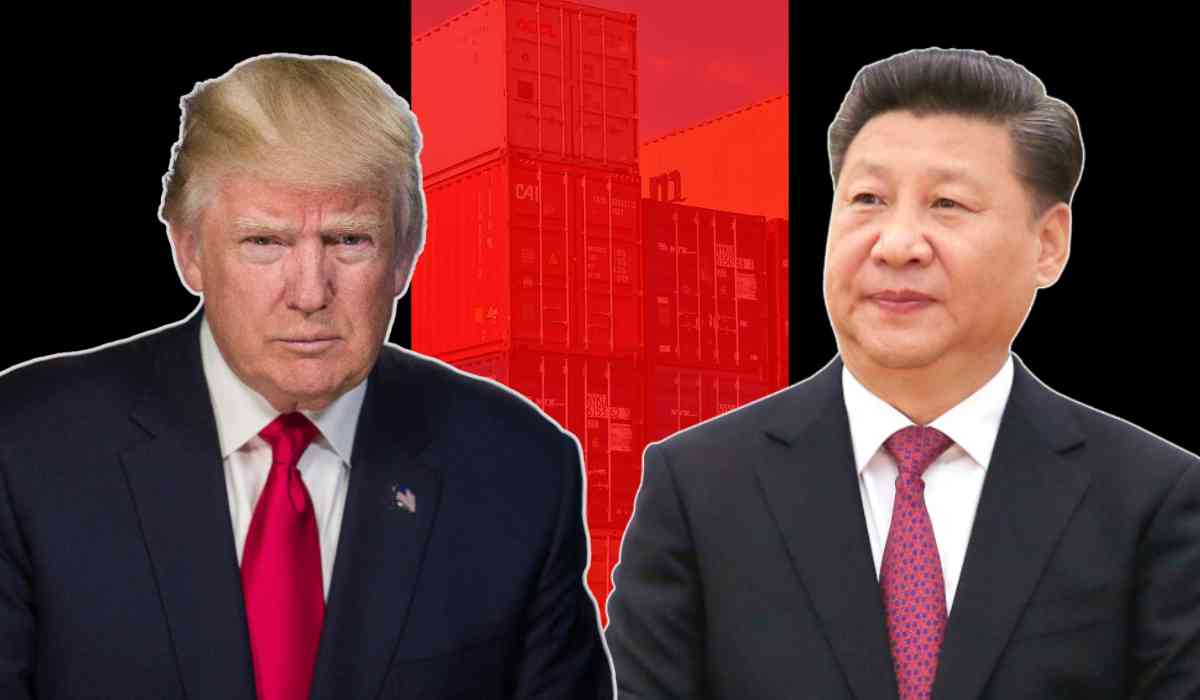The ongoing trade tensions between the United States and China have reached a new level of intensity. Recently, U.S. President Donald Trump threatened to impose an additional 50% tariff on Chinese goods if China does not withdraw its 34% counter-tariff on American products. This move has been sharply criticized by China, which views it as "compounding errors" and "blackmail" in an already strained trade relationship.

Background of the Trade War
The trade conflict between the U.S. and China began several years ago, with both countries imposing tariffs on each other's goods. The U.S. initially imposed tariffs on Chinese imports, citing unfair trade practices and intellectual property theft. China responded with its own tariffs on U.S. goods, leading to a cycle of retaliation and escalation.
In recent months, the situation has worsened. Trump announced a 34% tariff on Chinese imports, which China matched with a 34% tariff on U.S. goods. The latest threat from Trump to add another 50% tariff has heightened tensions, with China labeling it as "blackmail" and vowing to resist such measures to the utmost.
Impact of the Tariffs
If Trump follows through with his threat, the cumulative tariffs on Chinese imports could reach as high as 104%. This includes existing tariffs of 20%, the recently announced 34%, and the potential additional 50%. Such high tariffs could significantly increase the cost of Chinese goods in the U.S., potentially leading to higher prices for consumers and impacting businesses that rely on these imports.
China has also threatened to take countermeasures, including halting U.S. agricultural purchases and broadening export controls on key chemical elements. This could have a substantial impact on U.S. farmers and industries reliant on these imports.

Economic and Global Implications
The escalating trade war poses significant risks to the global economy. Both countries are major players in international trade, and their actions can have far-reaching consequences. The conflict has already led to declines in global markets and increased fears of a recession.
Economists argue that while higher tariffs might initially protect domestic industries, they can also lead to higher costs for consumers and businesses, potentially stifling economic growth. Additionally, the trade war undermines the principles of free trade and could lead to a broader global trade conflict.
China's Response and Perspective
China has consistently maintained that it will not yield to pressure and will defend its national interests. The Chinese government views the U.S. actions as coercive and has emphasized its willingness to resolve disputes through dialogue and cooperation. However, it has also made clear that it will not hesitate to implement countermeasures if necessary.
China's Commerce Minister, Wang Wentao, has stated that there are no winners in a trade war and that China seeks mutual respect in international dealings. Despite the tensions, China remains open to negotiations and has urged the U.S. to return to the negotiating table.

U.S. Perspective
The Trump administration has justified its tariff policies as necessary measures to address perceived trade imbalances and unfair practices by China. Trump has emphasized that the U.S. will not back down from its demands and has threatened to impose higher tariffs on any country that retaliates against U.S. actions.
However, critics argue that the tariffs could harm U.S. businesses and consumers more than they benefit them. The tariffs have already led to increased costs for many American companies, and further escalation could exacerbate these effects.
Global Reaction
The international community is watching the U.S.-China trade conflict with concern. The potential for a global trade war is high, as other countries could be drawn into the conflict. The European Union, for example, has faced threats of U.S. tariffs, which could further destabilize global trade dynamics.

Conclusion
The latest developments in the U.S.-China trade war highlight the deepening rift between two of the world's largest economies. While both sides maintain that they are acting in their national interests, the escalating tensions pose significant risks to global economic stability.
As the situation continues to unfold, it remains crucial for both countries to engage in constructive dialogue to resolve their differences. The path forward will require careful negotiation and a willingness to compromise, lest the trade war continue to escalate with potentially disastrous consequences for the global economy.
In the end, finding a balance between protecting national interests and maintaining open trade channels will be key to resolving this conflict. Both the U.S. and China must consider the long-term implications of their actions and strive for a solution that benefits not just themselves, but the global community as a whole.
With inputs from agencies
Image Source: Multiple agencies
© Copyright 2025. All Rights Reserved Powered by Vygr Media.

























